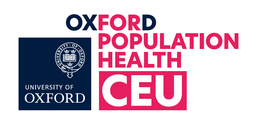Vegan Diets in the United Kingdom: What We’ve Learned from the EPIC-Oxford Study
Do people eating vegan diets have diets that are closer to recommendations? Do they eat more vegetables or less saturated fat than nonvegetarians? There are only a few studies that have investigated this on a large scale. One has been going on for about 30 years in the United Kingdom.
EPIC-Oxford, the Oxford cohort of the European Prospective Investigation into Cancer and Nutrition, is a large observational study that includes 65,000 adult men and women living throughout the U.K. Approximately 30% of subjects are lacto-ovo vegetarian and 4% are vegan (1).
During the study period, EPIC-Oxford subjects answered questions about their health and food choices. These answers provided insights into what a vegan diet looks like in the U.K. Overall, vegans, along with lacto-ovo vegetarians, had much higher intakes of soy foods, dried beans and lentils, and nuts compared to nonvegetarians. They also had higher intakes of whole grains, fruits, and vegetables. This is not surprising since we’d expect that vegans and lacto-ovo vegetarians would choose soy foods, dried beans and lentils, and nuts to replace animal-based foods.
Vegans had much lower saturated fat intakes than nonvegetarians in this study. There was not as much difference in saturated fat intake in lacto-ovo vegetarians compared to nonvegetarians. The higher saturated fat intakes of lacto-ovo vegetarians compared to vegans is probably due to generous use of cheese. The lacto-ovo vegetarians ate about 50% more cheese than the nonvegetarians did; cheese is often high in saturated fat. Vegans appeared to have lower protein intakes than nonvegetarians but these results are questionable because the dietary questionnaires used may not have included some newer protein-rich foods that vegans might have used.
Average dietary calcium intakes of vegans were lower than those of other study participants. Vegan calcium intakes increased over the course of the study, possibly due to greater availablity of calcium-fortified foods but still were lower than those of nonvegetarians and lacto-ovo vegetarians.
It was challenging to assess vitamin B12 intake since food fortification and supplement composition is quite variable. The researchers did look at vitamin B12 status of a subset of men and found that many vegans had blood levels of vitamin B12 that would indicate a vitamin B12 deficiency. This research was done close to 25 years ago. Changes to food fortification practices and increased awareness by vegans of vitamin B12 sources suggest that an updated assessment of vitamin B12 status is needed.
For most nutrients, the intakes of vegans were nutritionally adequate and met or were close to meeting government guidelines for good health. It would be interesting to conduct a similar study in the United States, using many more vegans.
Reference
- Key TJ, Papier K, Tong TYN. Plant-based diets and long-term health: findings from the EPIC-Oxford study. Proc Nutr Soc. 2022;81(2):190-198.
To read more about EPIC-Oxford see:
Long-term Studies of Vegetarians
Adequate Calcium Important for Vegan Bone Health

